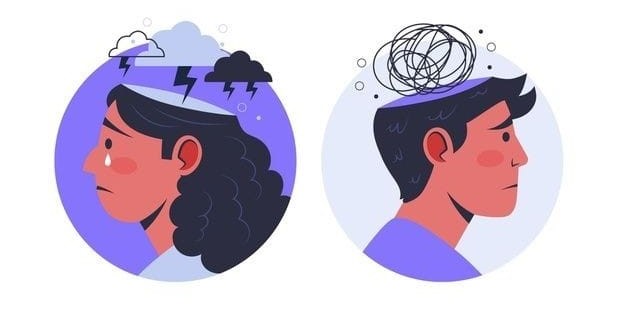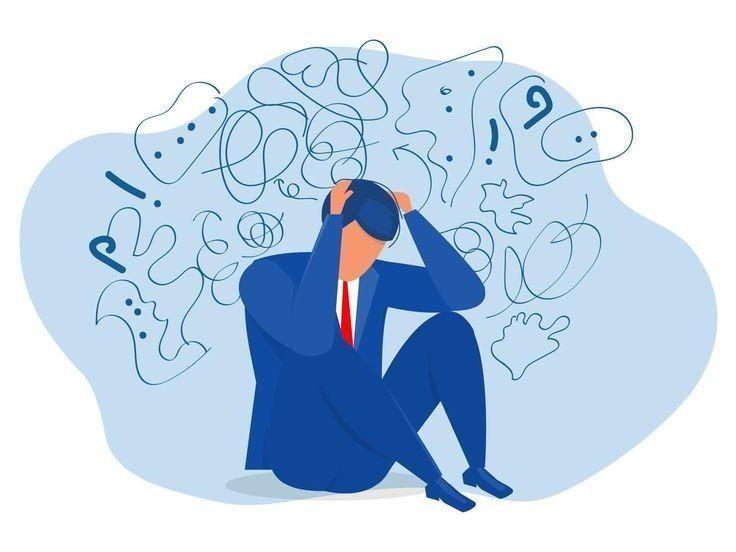◄ INTRODUCTION ►
What’s the price of ambition? For entrepreneurs chasing their dream of a thriving start-up, the cost is often measured not just in sleepless nights, but in their mental and emotional health.
Launching a start-up is like walking a tightrope across a canyon. Every step is a gamble, and the fear of falling is ever-present. Hence, over half of the entrepreneurs miss out on vacations or spending quality time with their loved ones, which results in contributing to the feeling of being lonely. Many entrepreneurs believe that if they invest all of their time and effort they are most likely to be successful enough but those are some mere beliefs because the success rate is relatively low, with around 65% of businesses failing within 10 years.
Before stepping into the dark side of the start-up grind, let's get to know some popular reasons why people choose to start their own business in the first place. About half of the population wants to be their own boss because they want to balance their work life, from scheduling to making time for everything and some entrepreneurs are dedicated to making their dreams into a reality.

"But despite living what some might think is the ‘entrepreneurial dream’, I have suffered from very bad depression throughout all of my successes and failures.” -Niall Harbison.
Here are some of the gathered information from digital survey from a wide community of startup founders around the globe:
72% of founders struggle with mental health.
37% suffer from anxiety.
36% experience burnout.
10% have panic attacks.
54% of founders are stressed about their businesses, with fear of failure.
77% of founders refuse to seek qualified professional help.
More than 50% of founders lose sleep since founding their companies, and that number skyrockets in step with the amount of money raised.
Founders spend 60% less time with spouses, 58% less time with kids, and 73% less time with friends and family, and the average level of loneliness reported is 7.6 out of 10.
◄ THE MAIN CAUSE OF MENTAL HEALTH ISSUES ►

A dark reality simmers beneath all the startup culture glamour: Increasing mental health crisis. So, let's discuss the causes of these crises.
•Financial Insecurity
The stress from tight budgets, profit uncertainty, fluctuating income and the need to raise funds accumulates and puts pressure on one’s well being. The reason for these stressors is quite simple: 90% of startups fail in the first couple of years. The added fear of losing everything only contributes to the strain.
•Hustle culture
Hustle culture is all around the world. Entrepreneurs are expected to work around the clock and think that a constant grind is the only way to succeed. The culture is known to promote long work hours, sacrifices and burnouts. Such a damaging work routine eventually leads to physical and mental exhaustion.
•Isolation
Founders often feel lonely during hard times because they do not have a proper support system. Despite having a team, the leaders feel that if they confide, they'll be seen as weak and lose the trust of the team and investors therefore they do not wish to talk about their challenges with anyone. However, this leads to loneliness and depression which can even be suicidal.
•Imposter Syndrome
Imposter syndrome forces entrepreneurs to think that they are unworthy or unqualified of their accomplishments. This creates a constant haze of anxiety as they let self doubt creep in. High expectations from investors, customers and employees only fuel these awful feelings and create a mind block for the entrepreneurs.
◄ Easing the Mental Health Toll ►

Even in the whirlwind of entrepreneurship, there’s room to breathe; here’s how to reclaim your balance and well-being:
•Self-Care
Entrepreneurs must set aside their time for physical and mental exercises, such as yoga, mindfulness, and hobbies. Engage in enjoyable activities with friends, family, or like minded individuals and avoid burnout by establishing some boundaries between work life and personal life. Include a healthy diet, meditation, and sunshine to your lifestyle for a better morning routine.
•Embrace Limits
Recognize your personal limits and accept them, rather than pushing oneself to the point of being depressed and ignoring the symptoms of such mental health conditions. Access to mental health resources, such as therapy or counseling can address deeper emotional challenges. Virtual therapy has made this more accessible for busy entrepreneurs.
•Disconnect From Work
Regularly take breaks to spend some time away from work for outdoor activities, whether it’s a walk, hike, or simply sitting in nature. Connecting with good things outside the work environment will be a fresh start towards the healing process.
◦ Conclusion ◦
As society continues to glorify the startup world, it is crucial to acknowledge the darkside of the grind. The relentless pursuit of success takes a heavy toll on the mental health of entrepreneurs, leading to burnout, anxiety, and depression. It is important to prioritize self-care, seek support from peers and professionals, and cultivate a healthier work-life balance to sustain success in both business and personal well-being.
The Darkside of the Startup Grind